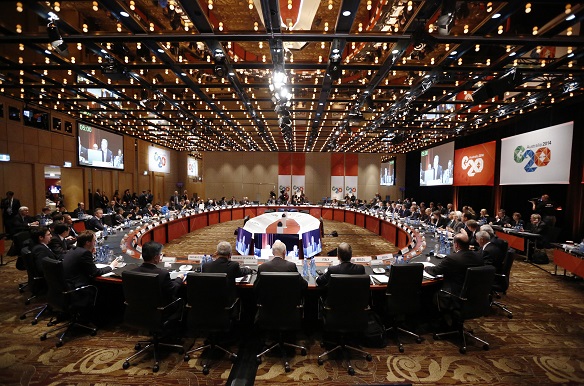On the context of U.S.-China climate pact held this week, the U.S. has vowed $3 billion to developing countries to limit emissions and adapt to climate change, reports Climate Progress.
The U.S. pledge to the Green Climate Fund (GCF) that will help developing countries to choose low-carbon and climate-resilient growth, is the largest national pledge to date.
President Obama made the announcement, at the beginning of the G20 summit in Brisbane.
President stated that contributions to the GCF will allow developing countries to “leapfrog some of the dirty industries that powered our development [and] go straight to a clean energy economy that allows them to grow, create jobs, and at the same time reduce their carbon pollution.”
Earlier this year, Germany, France, and Sweden led with significant commitments. It is expected that Shinzō Abe of Japan will soon announce a commitment of $1 to $1.5 billion in total.
If this happens, the GCF would have over $7 billion as it is moving towards the formal pledging conference in Berlin this coming week, with the fund prepared for an initial capitalization of at least $10 billion.
During the George W. Bush Administration, the U.S. pledged $2 billion over a 3-year period to the Climate Investment Funds.
The U.S. pledge comes amid rising appreciation that investments in a cleaner world economy would serve U.S. interests.
According to the Department of Defence, climate impacts can weaken regional governments leading to extremism.
The stunning economic costs of failing to invest in climate solutions are apparent. Between 2011 and 2013, 34 most severe U.S. weather events caused damages that totalled $208 billion.
Pledges to the GCF are necessary for the international climate negotiations. Countries are functioning for a climate agreement in 2015 that would be applicable for all, with a meaningful effect on world emissions.
In the Copenhagen Accord, developed countries agreed to assemble $100 billion every year by 2020 for developing countries to reduce their emissions and adapt to climate change.
Although country contributions to the GCF will account for only a part of this amount, developed countries are committed to climate finance by mobilizing the funds to fulfil the Copenhagen pledge.
U S Contributions to the GCF are vital to their credibility in the negotiations.
The GCF is well-positioned to progress on adapting to climate change and preventing more global warming.
The fund is governed by both developed and developing countries, already attracting the financial support of emerging economies.
Mexico has already pledged $10 million to the GCF. Korea has recently pledged up to $100 million to the fund and also hosts the fund in Songdo. Peru and others may soon pledge as well.
In addition, the investment design of the GCF aims the increasing adaptation funding over time, in accordance with the level of support offered to emissions mitigation.
So far, investment in resilience has lagged behind investment in clean energy: only 16 percent of global public climate finance was invested in adaptation measures in 2012.
A main function of the fund should be to mobilize private finance. The private sector can contribute a huge amount of investment and has already proved it by supplying 62 percent of global climate finance in 2012.
Public investments can help solve this potential and can be used to make private investments in the least developed countries through risk mitigation measures.
The GCF will begin investing in projects next year onwards such as the establishment of early warning systems, introduction of agricultural practices to protect crops from drought and flooding, the installation of wind farms, and implementation of residential energy efficiency programs.
The coming months will point out whether the GCF has sufficient support to begin making investments that can help create a transition to a sustainable world economy.
Sabeena Wahid
editor@greentechlead.com


